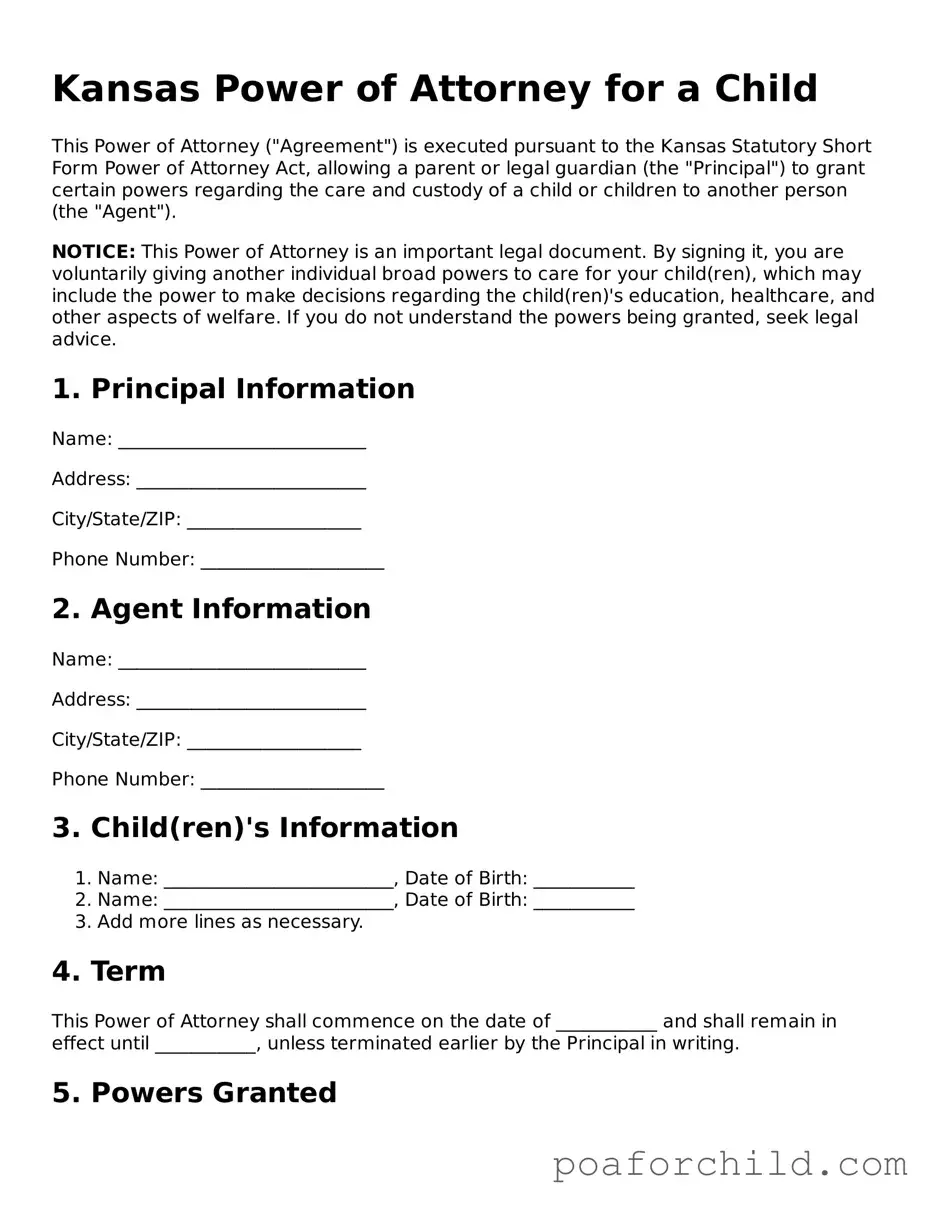Detailed Guide for Using Kansas Power of Attorney for a Child
Filling out a Power of Attorney for a Child in Kansas is a significant step towards ensuring a child's needs are taken care of in the absence or incapacity of their parents or legal guardians. This legal document grants a trusted individual the authority to make decisions concerning the child’s welfare, including education, health care, and everyday needs. The process requires attention to detail and precision to ensure that the document compliates with Kansas state laws and effectively communicates the intentions of the parent or legal guardian.
- Begin by downloading the most current version of the Kansas Power of Attorney for a Child form from a reliable source. Ensure the form is specific to Kansas, as laws and requirements vary by state.
- Enter the full legal names of the parent(s) or legal guardian(s) granting the power of attorney in the designated sections. If there is more than one, include all names as required.
- Specify the full legal name of the person being appointed as the attorney-in-fact (or agent) for the child. This person will gain the authority to make decisions on behalf of the child.
- Provide detailed information of the child or children under the power of attorney, including their full legal names, birth dates, and any other information the form requests.
- Clearly outline the powers being granted to the attorney-in-fac. Be specific about the scope of authority given, such as decisions related to education, healthcare, or general welfare. The form may offer checkboxes or a section to write specifics about the authority being granted.
- If there are specific powers or decisions that are not to be included, explicitly state these restrictions on the form to avoid any confusion.
- Include the effective date of the power of attorney. Some forms may also ask for an expiration date if the power is not intended to be indefinite.
- Read through the completed form to ensure all information is accurate and complete. Make any necessary adjustments or corrections.
- Have the form notarized, if required by Kansas law. This typically involves signing the form in front of a notary public and having them officially stamp the document.
- Provide the attorney-in-fact with an original or certified copy of the notarized power of attorney, and keep a copy for your records.
- Notify relevant parties, such as schools, healthcare providers, and familial contacts, of the power of attorney, providing them with a copy if necessary.
When the form is completed, signed, and notarized, the Power of Attorney for a Child becomes a legally binding document in Kansas. It's essential to revisit and possibly renew the document as circumstances change or at the expiration date, if one was set. Proper execution and renewal ensure that the child's welfare remains safeguarded in accordance with the parent's or guardian's wishes, under the care of a trusted attorney-in-fact.
